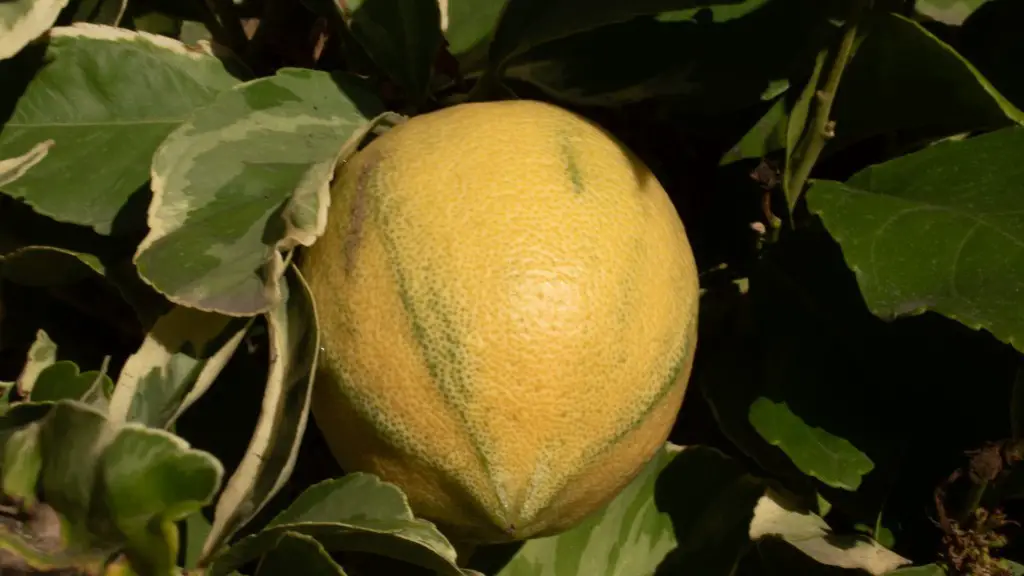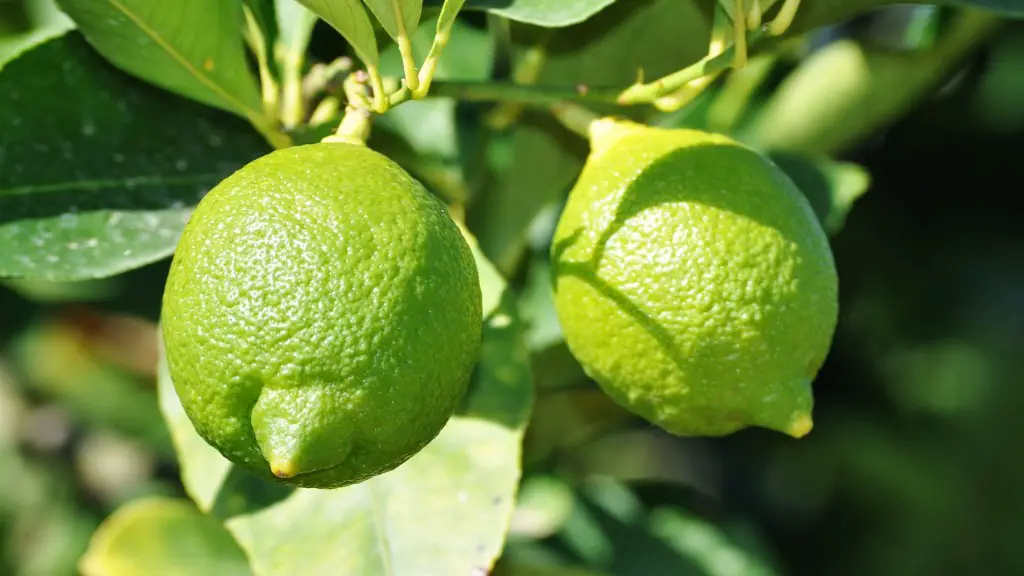Caring for an indoor lemon tree involves giving it the proper light, watering evenly, and pruning occasionally. Taking these steps will ensure your tree stays healthy for years to come. Here’s how to get started:
Provide the Proper Light
Light is essential for your lemon tree to produce lemons. For the best results, place your tree in a spot that gets direct sunlight for 6 to 8 hours per day. If direct sunlight isn’t available, you can provide a suitable substitute light source. Specialized, full-spectrum fluorescent bulbs with lots of UV-B rays can adequately simulate natural light.
Water Evenly
Watering your tree properly is key to its survival. Don’t let your tree sit in water; keep it in a well-aerated potting soil, and check the soil daily. When it’s dry, water the soil until it’s saturated, but don’t let it sit in water. Over-watering can cause root rot, which can kill the tree.
Fertilize Regularly
Your lemon tree needs extra nutrients to produce good-sized lemons. Use a regular, balanced fertilizer, one that contains all the essential macro- and micronutrients. Fertilize once a month in the spring and summer, and once every two months in the fall and winter.
Prune Regularly
To keep your tree healthy and productive, you need to prune it regularly. Gently prune branches to shape your tree and clear away dead or dying branches and foliage. Pruning also helps keep air circulating and encourages the lemon tree to produce larger fruits.
Monitor for Pests
Keep an eye out for potential pests, such as scales, mealybugs, or aphids. If you see any signs of infestation, treat the tree immediately with a mild insecticide. If left unchecked, these pests can spread quickly, damaging your tree and reducing your crop.
Pest Control
If you keep an eye out for pests, you can take steps to prevent an infestation. Regularly check your tree for symptoms of pests, such as yellow, wilted, or discolored leaves. If you see any signs, immediately treat your tree with a mild insecticide.
Temperature Requirements
Temperature is an important factor in caring for your lemon tree. Lemon trees don’t tolerate extreme heat or cold. For best results, keep your tree in a temperature around 70°F (21°C). Never let it dip below 40°F (4°C); this is way too cold for a lemon tree.
Mulch and Soil
Outdoor lemon trees benefit from the natural soil and mulch in the ground. For indoor lemon trees, you need to create a suitable growing environment. Make sure the soil is well-aerated, and add a layer of mulch around the tree as well. This will help keep the soil moist and prevent weeds from taking over.
Pruning and Planting
When planting your lemon tree, it’s important to prune it first. Prune off any dead growth, and shape the tree the way you want it. This will help promote growth and ensure the tree takes root and grows properly. After your tree is planted, prune it every few months to ensure maximal growth and production.
Encourage Pollination
For your lemon tree to produce fruit, it needs to be pollinated. You can either do this yourself, by gently shaking the tree and branches to distribute the pollen, or you can bring in some pollinators. If this isn’t an option, you can buy a small bee house and set it up nearby, encouraging bees and other pollinators to visit your tree.
Harvesting and Storing
When the lemons are ready to harvest, wait until they turn yellow and slightly soft. Pick the lemons off the tree, and store them in a cool, dry place. You can also freeze the juice to use later. If you pick the lemons when they’re still green, they won’t ripen properly, so make sure to wait until they’re ready.



